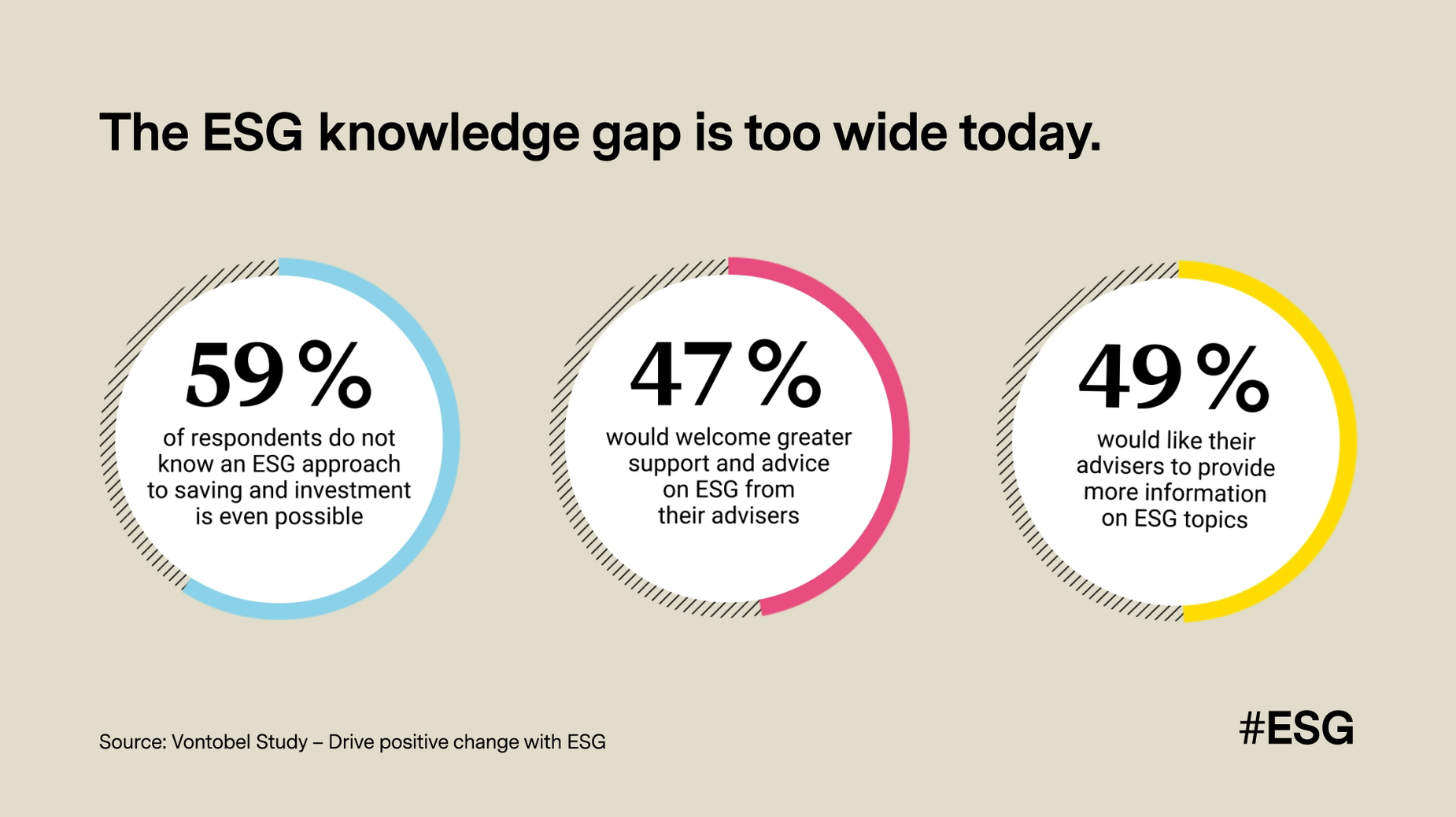Drive positive change with ESG (part 1)
Value-oriented, long-term and sustainable investing is the trend today. Also at Vontobel – but for almost 30 years already. The recent abbreviation “ESG” refers to the use of Environmental, Social and corporate Governance factors to assess companies or countries in terms of their contribution to sustainability.
Up till now, such investment opportunities were in demand mainly from professional and institutional investors. Yet many private investors also consider sustainable investment a convincing approach. What's stopping them from implementing these ideas?
In our 3-part series based on a detailed ESG study by Vontobel, learn how the inclusion of ESG criteria can provide investors with solid arguments to support their investment decisions, and even reduce risks and create new return opportunities.
Did you know that more than half of the people we surveyed (59 percent) stated that they have never been exposed to the idea of taking an ESG approach to saving and investing? It’s true, even though the topic of sustainability is front and center these days. Learn more about the ESG knowledge gap in Part 1: why it exists – and why a turnaround has already begun.
Too much confusing terminology on the market
One problem could be the language, thinks Erich Stadlberger, manager of the Private Banking and Asset Management Department at Oberbank in Austria. He believes there is currently too much confusing terminology on the market. "Sustainability is the word people are more familiar with," he says. “Because the term ‘ESG’ is used in a professional setting, the majority of consumers can’t place it.”
Thomas Trsan, Specialist for ESG and Impact Investing at Vontobel Wealth Management, emphasizes that the client mood changed. "For private clients, financial return is still in the foreground, but we observe that the number of clients who would like an investment portfolio based on their personal values is increasing,” he says. "As these approaches receive more attention in social media, this trend is going to intensify even more.”

However, due to the lack of information and inadequate client support in this regard, there is a risk that going forward, ESG will have a hard time catching on. For the time being, ESG investing remains a niche activity – only 29 percent of our survey’s respondents have already allocated part of their savings and investments to ESG approaches.
Sustainable investment can benefit both you as an individual and society as a whole. It can reduce environmental, social and governance risks, and have a positive environmental and social impact.
How intermediaries can help
At present, relatively few savers and investors seek out professional help when they make financial decisions. This means that it is intermediaries who will have to find ways to overcome the barriers preventing many people from availing themselves of information on ESG investing.
Increasingly, though, it is recognized that ESG-conscious investing will develop on its own as assets are passed on. Carlos Garay, responsible for ESG at Sabadell Urquijo Gestión in Spain, explains: "We have conversations at the moment with clients between the ages of 60 and 70 who are starting to bring their children to these meetings. In ten years, it will be the younger generations who will be leading the discussions. And they are clearly more focused on these issues.”
Order our ESG study
Would you like to find out more about ESG and obtain a condensed overview of our study on what investors are thinking about the topic of sustainable investing? Order it here for free!
